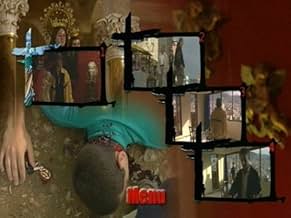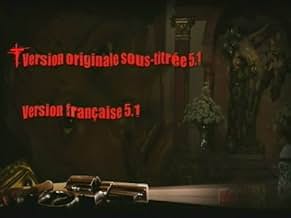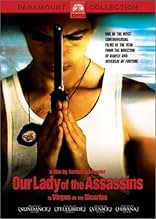VALUTAZIONE IMDb
6,8/10
4350
LA TUA VALUTAZIONE
Lo scrittore F. Vallejo torna a Medellin dopo un'assenza di oltre trenta anni. Incontra il sedicenne Alexis. Lui è il tipo di assassino che mette fuori combattimento le persone a comando. I ... Leggi tuttoLo scrittore F. Vallejo torna a Medellin dopo un'assenza di oltre trenta anni. Incontra il sedicenne Alexis. Lui è il tipo di assassino che mette fuori combattimento le persone a comando. I due sono subito attratti l'uno dall'altro.Lo scrittore F. Vallejo torna a Medellin dopo un'assenza di oltre trenta anni. Incontra il sedicenne Alexis. Lui è il tipo di assassino che mette fuori combattimento le persone a comando. I due sono subito attratti l'uno dall'altro.
- Premi
- 3 vittorie e 3 candidature totali
Trama
Lo sapevi?
- QuizFilm debut of Anderson Ballesteros.
Recensione in evidenza
Medellin is a dangerous city in more ways than one is lead to believe. At the time of the action, Pablo Escobar's empire has been dismantled and his loyal soldiers are scattered all around the city engaging in a game of death, revenge and petty vendettas. There is no reverence for life in a place that has seen violence on a daily basis and where children have access to guns for protection in order to survive in that environment.
Barbet Schroeder, the German director, expands on Fernando Vallejo's novel, which the author adapted for the screen, resulting in a highly violent and bloody film that is disturbing, as well as true.
Fernando, the older gay man who comes back to his native city of Medellin, quickly finds a boy to satisfy his needs. Alexis, the young man, is seen at first at the all-male brothel where he is offered by the pimp to Fernando. Alexis turns out to be something the older man didn't expect. This is a boy that is savvy in the ways of how to survive in the city, who clearly takes an interest in the older, and richer Fernando.
Alexis is a marked man and it's only a matter of time; his days are numbered because there are other youths behind him that will do whatever in their power to eliminate him. Fernando can't believe what his city has become, but he has no desire to go away again. When Alexis is killed, Fernando mourns his death until Wilmar, another young gay man appears in his orbit. Little prepares Fernando to realize who Wilmar is really.
Fernando's comments on the situation in his city, as well as in the Colombian reality, are the basic themes of the film. While one side of him cries for that old place he knew as a child, he welcomes this new metropolis full of danger and people that attracts and repulses him at the same time.
German Jaramillo appears to be the alter ego for the writer, Fernando Vallejo, whose story seems to resemble that of the Fernando in the novel and in the film. Mr. Jaramillo's take on Fernando keeps him away from the confrontations between his young lovers and what he thinks is right. He never passes judgment on what the young people are doing, yet he is instrumental for providing the bullets that Alexis needs to defend himself. The other two young actors, Anderson Ballesteros and Juan Diego Restrepo, play Alexis and Wilmar respectively.
Barbet Schroeder has directed the film with all its realism showing us a society in which all hope seems to have abandoned the citizens of the city.
Barbet Schroeder, the German director, expands on Fernando Vallejo's novel, which the author adapted for the screen, resulting in a highly violent and bloody film that is disturbing, as well as true.
Fernando, the older gay man who comes back to his native city of Medellin, quickly finds a boy to satisfy his needs. Alexis, the young man, is seen at first at the all-male brothel where he is offered by the pimp to Fernando. Alexis turns out to be something the older man didn't expect. This is a boy that is savvy in the ways of how to survive in the city, who clearly takes an interest in the older, and richer Fernando.
Alexis is a marked man and it's only a matter of time; his days are numbered because there are other youths behind him that will do whatever in their power to eliminate him. Fernando can't believe what his city has become, but he has no desire to go away again. When Alexis is killed, Fernando mourns his death until Wilmar, another young gay man appears in his orbit. Little prepares Fernando to realize who Wilmar is really.
Fernando's comments on the situation in his city, as well as in the Colombian reality, are the basic themes of the film. While one side of him cries for that old place he knew as a child, he welcomes this new metropolis full of danger and people that attracts and repulses him at the same time.
German Jaramillo appears to be the alter ego for the writer, Fernando Vallejo, whose story seems to resemble that of the Fernando in the novel and in the film. Mr. Jaramillo's take on Fernando keeps him away from the confrontations between his young lovers and what he thinks is right. He never passes judgment on what the young people are doing, yet he is instrumental for providing the bullets that Alexis needs to defend himself. The other two young actors, Anderson Ballesteros and Juan Diego Restrepo, play Alexis and Wilmar respectively.
Barbet Schroeder has directed the film with all its realism showing us a society in which all hope seems to have abandoned the citizens of the city.
I più visti
Accedi per valutare e creare un elenco di titoli salvati per ottenere consigli personalizzati
- How long is Our Lady of the Assassins?Powered by Alexa
Dettagli
- Data di uscita
- Paesi di origine
- Sito ufficiale
- Lingue
- Celebre anche come
- Our Lady of the Assassins
- Luoghi delle riprese
- Aziende produttrici
- Vedi altri crediti dell’azienda su IMDbPro
Botteghino
- Lordo Stati Uniti e Canada
- 525.330 USD
- Fine settimana di apertura Stati Uniti e Canada
- 56.069 USD
- 9 set 2001
- Lordo in tutto il mondo
- 624.525 USD
- Tempo di esecuzione1 ora 41 minuti
- Colore
- Mix di suoni
- Proporzioni
- 1.78 : 1
Contribuisci a questa pagina
Suggerisci una modifica o aggiungi i contenuti mancanti

Divario superiore
What is the Spanish language plot outline for La vergine dei sicari (2000)?
Rispondi























